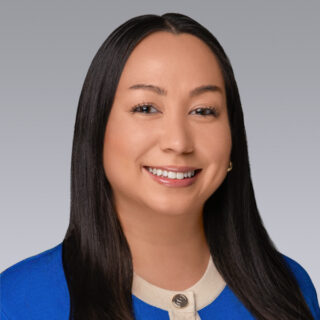Colliers Capital Markets recently spoke to Mark Owens, Vice Chair and leader of Colliers’ national hospitality practice group, about the myriad opportunities in the space.
Colliers Capital Markets (CCM): What’s the outlook for the hospitality market in 2023?
Mark Owens (MO): The cost of capital has increased, which means financing costs are further impacting higher construction costs. These escalations will constrain new development. Demand consistently exceeds prior peaks in each cycle. Scarcity of product and increased demand bode well for pricing power, offering continued ADR (average daily rate) upside and sustained pricing power to hoteliers, which should positively impact the bottom line. Furthermore, owners have honed yield management strategies and are solving for optimal occupancy and rate to achieve maximum profitability, which is a positive.
On the finance side, benchmarks are normalizing. Floating-rate debt is still expensive, but fixed-rate options are becoming more compelling for cash-flowing assets because there are no hedging costs or points in. This is the challenging side of the equation.
We like to consider ourselves problem solvers, and the hospitality market’s dynamics create flexibility in solving these puzzles. There will continue to be opportunities for investors across the spectrum, and the fundamentals remain strong from the urban core to resort markets.
CCM: Where does business travel stand?
MO: Business traveler demand is still ramping. However, in January, CREFC and ALIS had record attendance at each event. Conventions are typically booked two-to-three years in advance, meaning an uptick is likely coming in that segment. Convention-goers rejoining the business traveler ranks suggests there is likely more pent-up demand than we anticipate.
“Business traveler demand is still ramping…Conventions are typically booked two-to-three years in advance, meaning an uptick is likely coming.”
CCM: How about international travel?
MO: In many markets, the lodging sector is achieving record ADRs with little support from international travel, which COVID-related restrictions curtailed. APAC wasn’t open until recently, and the lack of that segment had an outsized impact on many West Coast markets, which have a higher share of APAC visitors. The strong dollar affects leisure travel but has not deterred the wealthy or business travelers. Leisure travel is back in New York City with strong pricing power in the market and select other gateway markets. Despite the rebound in visitation in many urban gateways, many markets still have great buying opportunities.
CCM: There is a lot of talk of office-to-fill-in-the-blank conversions. Is this a means for developers to bring new product to market?
MO: Generally, this is not yet a viable strategy. Substantial infrastructure is needed to convert an office building into lodging. Unless the asset’s value is substantially reduced, making a conversion work financially is difficult. We are seeing first or second-generation properties that no longer fit brand standards being viewed as conversion opportunities. These hotels are being retrofitted to workforce housing or assisted living, specifically older suite products or full-service properties that offer dining, catering, and amenity spaces suited for tenant use.
 Aaron Jodka
Aaron Jodka
“We are seeing first or second-generation properties that no longer fit brand standards being viewed as conversion opportunities. These hotels are being retrofitted to workforce housing or assisted living, specifically older suite products or full-service properties, which offer dining, catering, and amenity spaces suited for tenant use.”
CCM: CMBS delinquency rates have come way down in the hospitality space. Do you see distress opportunities in the market?
MO: It is a tale of two cities. The resort markets and iconic, well-capitalized assets are performing or have ownership that can sustain market movements. On the opposite spectrum are properties that need to rebrand or had substantial planned renovation projects and are now facing potential stress. In many cases, pre-pandemic planned capital improvement funds were used to keep these hotels open and operating, leaving them capital-starved. Will the markets allow these “zombie” assets to live on, or will owners and banks be forced to divest them? Regulators’ edicts may be the ultimate deciding factor here.
Mark Owens joined Colliers earlier this month as Vice Chair and leader of Colliers’ national hospitality practice group. Mark is one of the foremost experts in the hospitality sector, bringing more than 20 years of experience, long-standing relationships, and a history of building institutional growth within hospitality practice groups. In his new role, Mark will focus on hospitality sector investment sales, acquisitions, joint ventures, private equity, debt and structured financing, and recapitalization efforts.



 Nicole Larson
Nicole Larson
